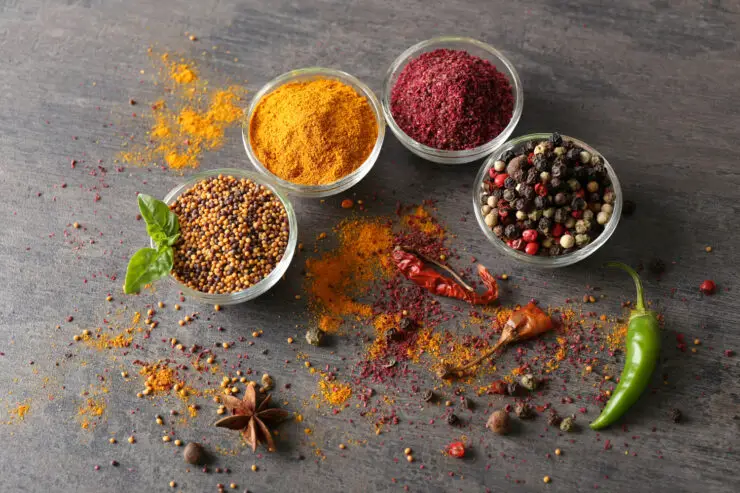As an Amazon Associate I earn from qualifying purchases. Please read the disclaimer for more info.
Welcome to an aromatic adventure through the vibrant world of Vietnamese spices!
In this journey, we’ll explore these spices’ indispensable role in creating the unique and complex flavors that set Vietnamese cuisine apart from other Asian culinary traditions.
From the earthy warmth of star anise to the citrusy zing of lemongrass, Vietnamese spices infuse each dish with a delightful freshness and depth of flavor that will leave your taste buds craving more.
Vietnamese Spices Essential to Vietnamese Cuisine
Black Pepper
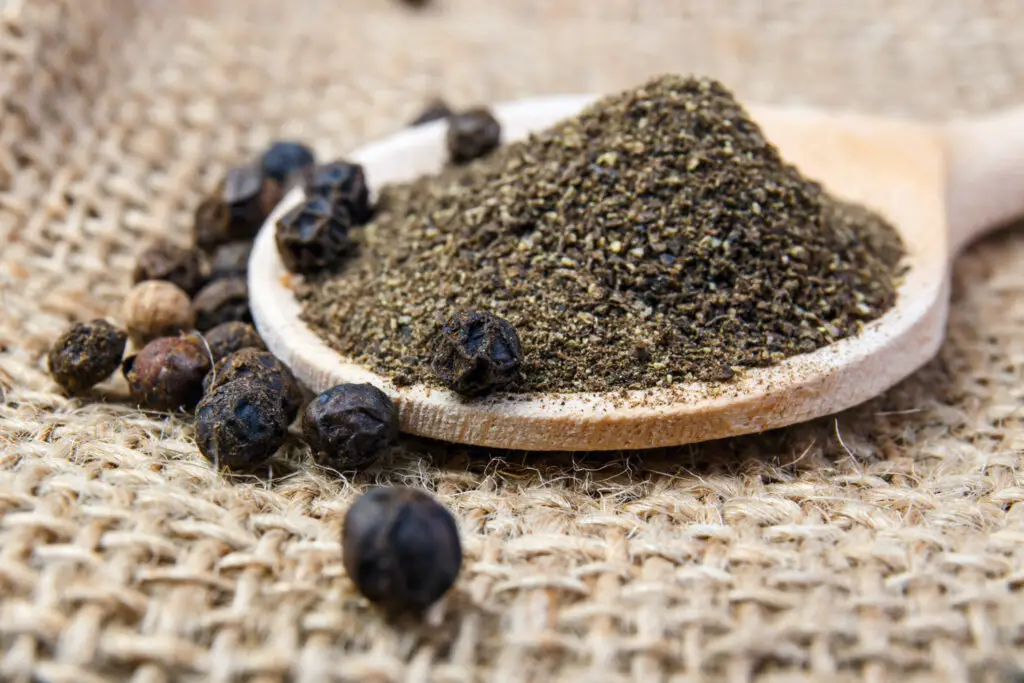
Black pepper is a popular spice used in Vietnamese cuisine to add a spicy and pungent taste to dishes. It is typically used in combination with other spices, such as garlic, ginger, and lemongrass, to create complex and flavorful marinades and sauces.
In Vietnamese cooking, black pepper is often used to season grilled meats and stir-fried vegetables, and it is also added to broth-based dishes like pho and curries.
Star Anise
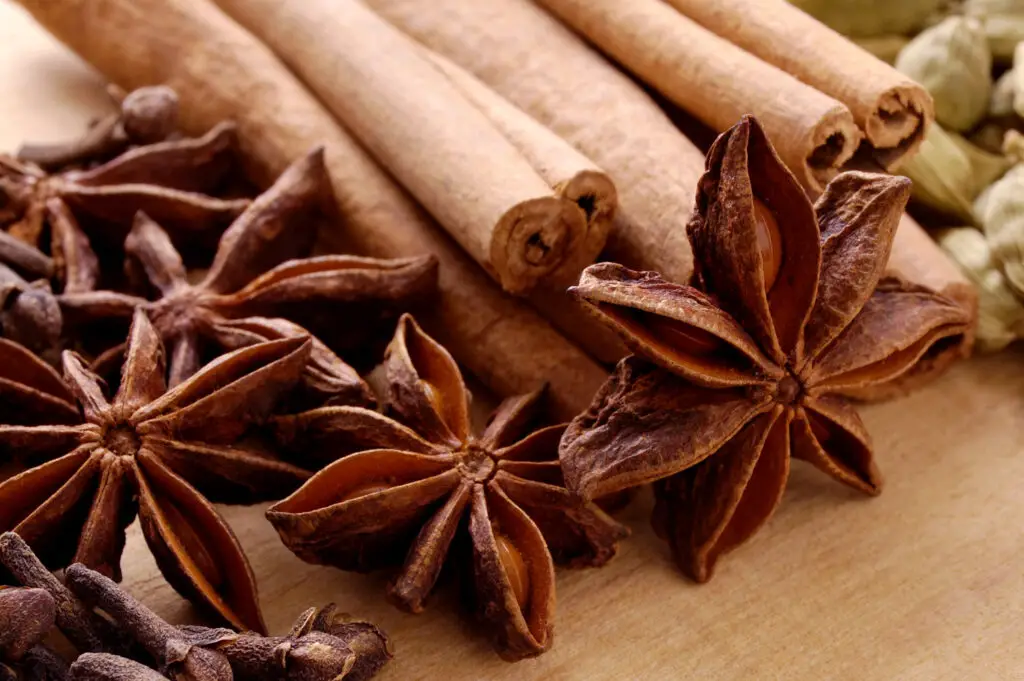
Star anise is one of the crucial Vietnamese spices used in Vietnamese cuisine that is renowned for its bold and distinct flavor.
This star-shaped spice is a staple in many dishes, including soups, stews, and marinades.
It is one of the core Vietnamese spices in pho, the famous Vietnamese soup with rice noodles.
The aromatic spice is usually paired with cinnamon, cloves, and fennel seeds to give pho its signature warm and comforting flavor profile.
In addition to its culinary uses, star anise also has medicinal properties and has been used in traditional medicine to aid digestion and relieve coughs.
Clove
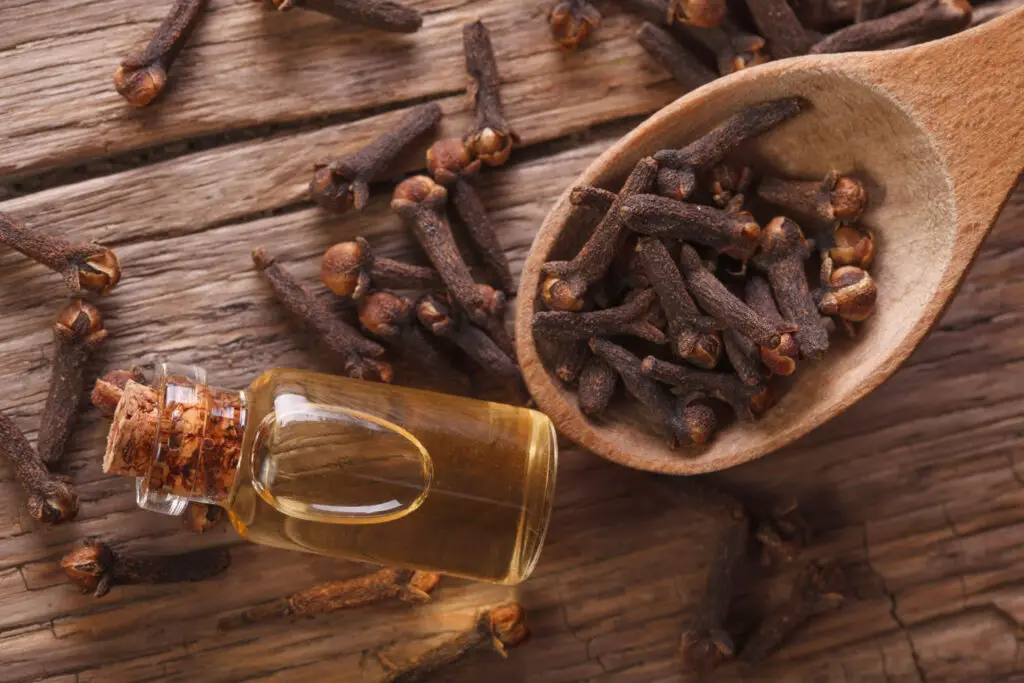
Clove, which is known for its warm and slightly bitter taste, is an essential spice in Vietnamese cuisine.
Its distinct flavor and aroma complement many dishes, adding a unique twist to the cuisine.
Apart from pho, another well-known soup clove is used in is Bun Ga Hue, a spicy chicken noodle soup from the central city of Hue.
The warm and spicy notes of cloves blend perfectly with the savory broth and tender meat, creating a rich, fragrant, comforting, and satisfying dish.
Cloves are important for their taste and medicinal properties, as they are known for their anti-inflammatory and anti-bacterial effects.
In Vietnamese culture, cloves symbolize good luck and are often used in festive dishes during the Lunar New Year.
Cinnamon
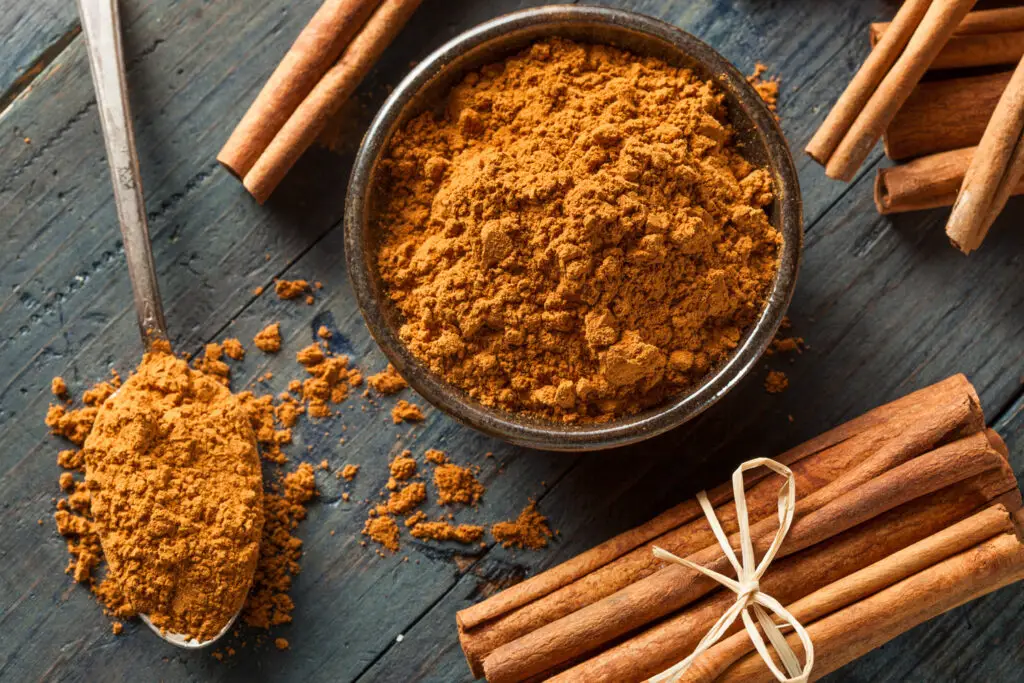
Cinnamon has been a staple in Vietnamese cuisine for centuries. This distinct spice is celebrated for its warm, sweet, and slightly woody fragrance and its numerous health benefits.
Cinnamon brings a unique depth of flavor to many Vietnamese dishes, such as pho and bun bo Hue soup.
However, one of the most famous Vietnamese recipes that use cinnamon is the famous Vietnamese beef stew called Bo Kho.
This hearty dish greatly represents how cinnamon balances the savory and sweet flavors and creates a complex flavor profile in Vietnamese cuisine.
Cardamom
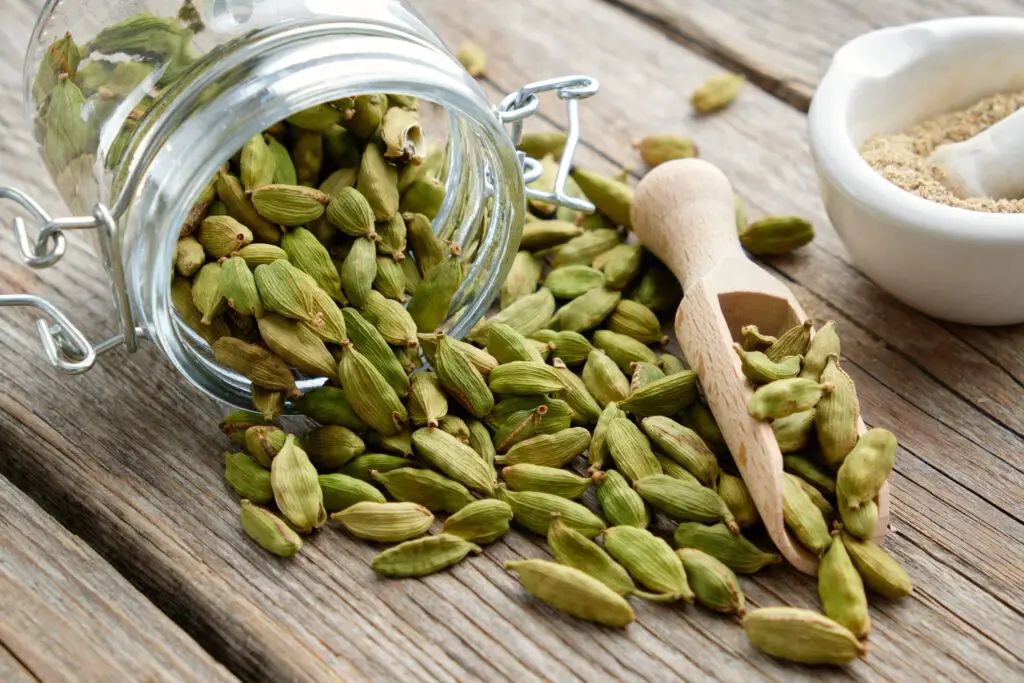
Cardamom is a vital ingredient in many Vietnamese dishes, adding a distinct aroma and warm spice to the cuisine.
This spice is widely used in Vietnamese cuisine, adding depth and complexity to many meals.
Cardamom is one of the five spices that make up the five-spice blend. This spice is so important that it’s often used to develop a dish’s overall flavor.
As a result, it’s difficult to imagine Vietnamese cuisine without cardamom’s unique taste and fragrance.
Fennel Seeds
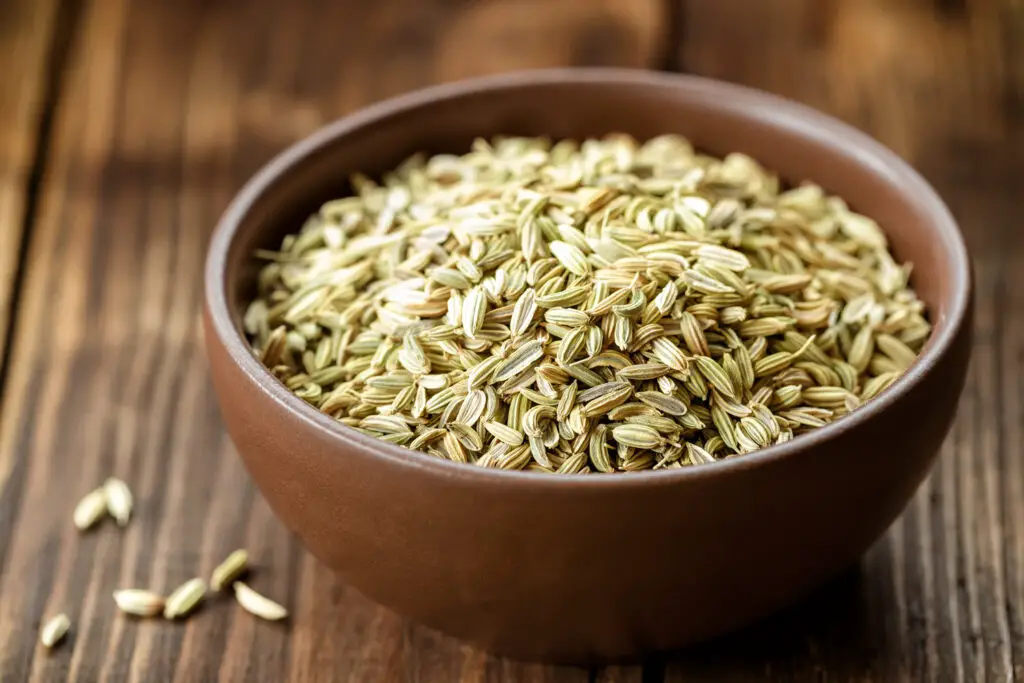
Fennel seeds may not be the most well-known of the Vietnamese spices, but they play a vital role in many traditional dishes.
In Vietnamese cuisine, fennel seeds are often used as a key ingredient in spice blends, marinades, and broths.
They impart a warm, aromatic depth to dishes and pair exceptionally well with other spices like star anise, cinnamon, and cloves.
Additionally, fennel seeds can be used whole or ground, depending on the desired texture and intensity of flavor.
An example of using fennel seeds is Thit Kho Fennel, a Vietnamese Caramelized Fennel Pork dish.
Annatto Seeds
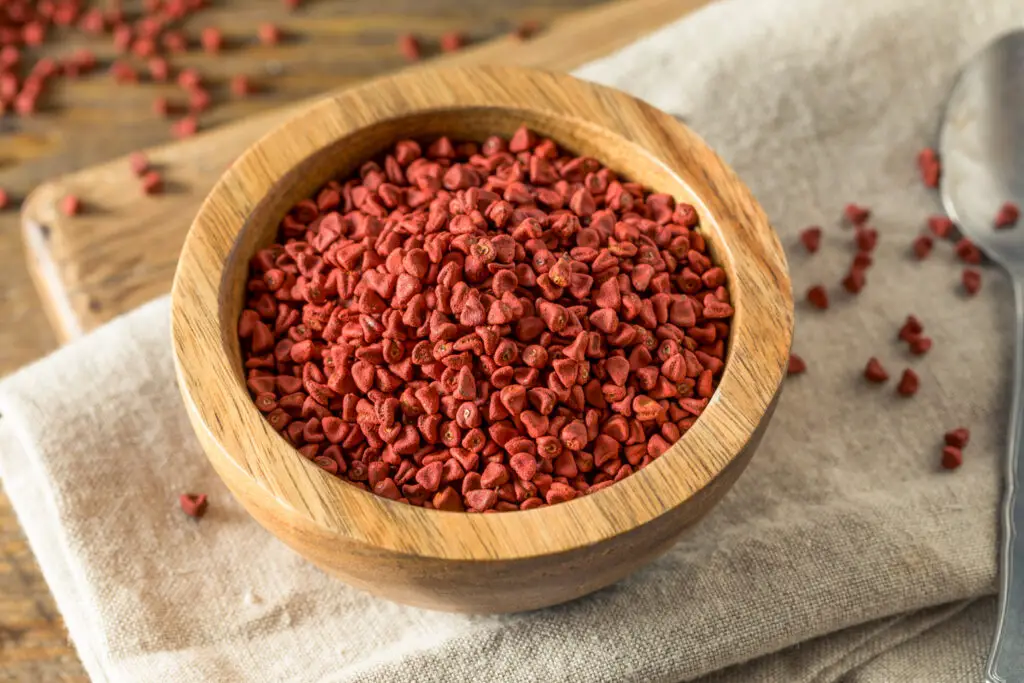
Annatto Seeds are a crucial component of Vietnamese cuisine, lending a distinct flavor and vibrant color to various dishes.
Perhaps the most famous Vietnamese dish that features Annatto Seeds is the spicy Hue-style beef noodle soup, Bun Bo Hue.
The seeds are crushed, mixed with water, and then added to the broth to give it a bright orange color and a slightly bitter, earthy flavor.
Annatto Seeds add a unique taste to Vietnamese cooking and a visual appeal that cannot be easily replicated.
Ginger Spice
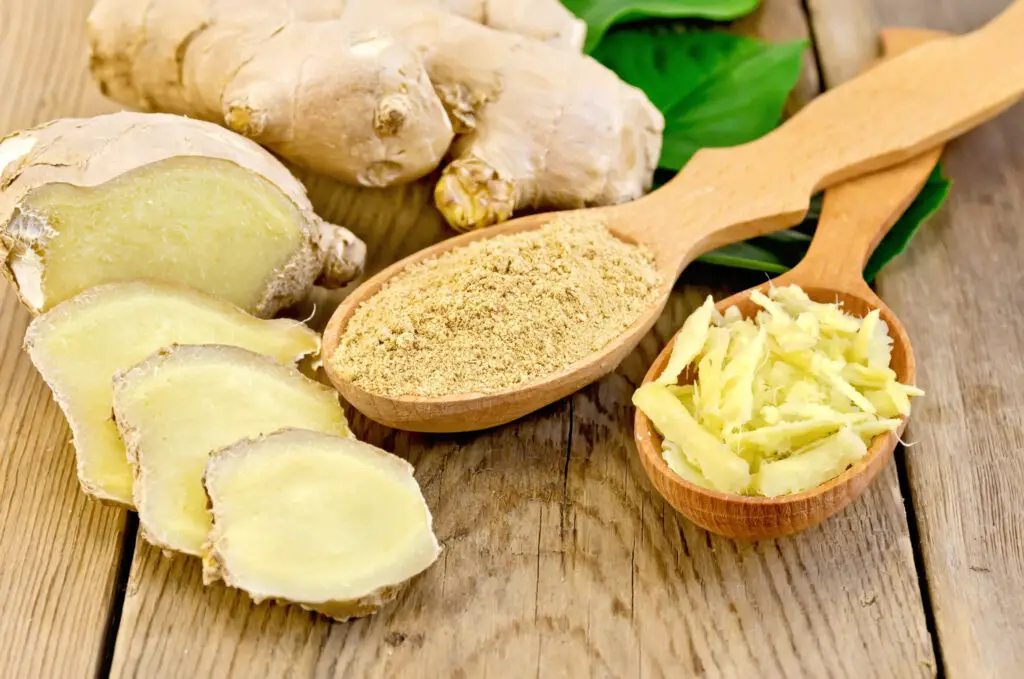
Ginger is another of the crucial Vietnamese spices used in many Vietnamese dishes.
Its unique and zesty flavor adds depth and complexity to Vietnamese food, making it a popular choice for many Vietnamese cooks.
One recipe that ginger is famously used in is the classic dish Canh Chua, a sweet and sour soup.
Ginger is known for its taste and medicinal properties, making it a highly sought-after ingredient in Vietnamese cuisine.
Its numerous health benefits, including anti-inflammatory and anti-nausea properties, have made it a staple in numerous dishes, proving that ginger spice elevates the taste of a dish and adds value to our overall health and well-being.
Turmeric
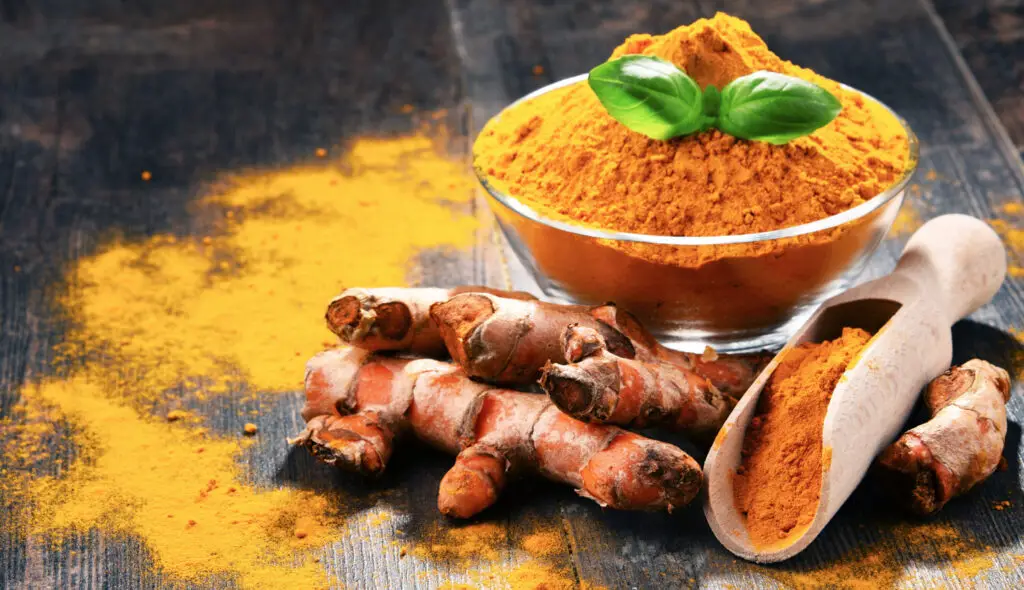
Turmeric is a spice that is widely used in Vietnamese cooking and is renowned not only for its distinct flavor but for its many health benefits as well.
In Vietnamese cuisine, turmeric can be found in many dishes, including broths, soups, stir-fried dishes, and more.
Perhaps the most famous Vietnamese dish that uses turmeric is the traditional Cha Ca La Vong, a famous fish dish from Vietnam’s capital, Hanoi.
However, turmeric is not just a tasty addition to meals – it has been known for centuries for its anti-inflammatory properties and can assist with everything from digestion to reducing joint pain.
Garlic Powder
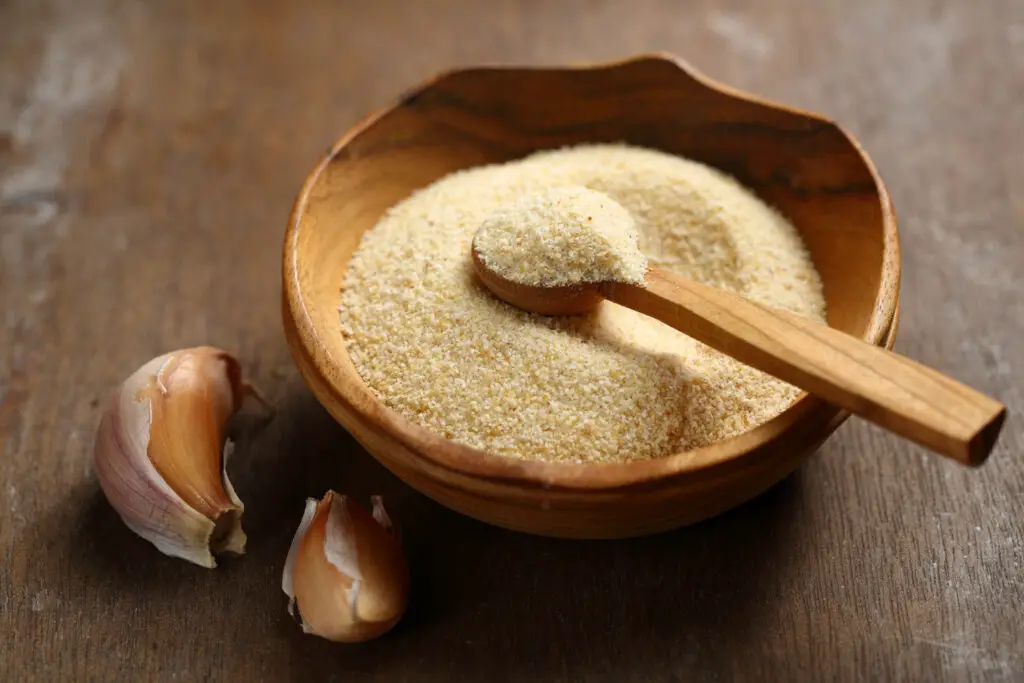
Garlic powder is a quintessential ingredient in Vietnamese cooking, known for its strong, aromatic spices.
The powder is derived from dried garlic cloves that have been ground into a fine texture. This incredibly versatile spice is added to marinades, stir-fries, fried rice, and sauces, giving each dish an irresistibly fragrant kick.
A famous Vietnamese recipe that uses garlic powder is Bún Thịt Nướng – a grilled pork noodle salad. The garlic powder is incorporated into the marinade for the pork, infusing the meat with a pungent and savory flavor.
Other Key Vietnamese Flavors
Fish Sauce
Fish sauce is an essential ingredient in Vietnamese cooking. It is used as a base for many sauce and marinade recipes and is made by fermenting fish with salt. The sauce is rich in umami flavor and adds depth and complexity to dishes. In Vietnamese cuisine, fish sauce is often used in dipping sauces, soups, and stir-fried dishes.
Chilli peppers
Chili peppers play a central role in Vietnamese cuisine, adding a distinctive heat and fragrance to many dishes. They’re a key ingredient in many homemade sauces, dips, and marinades.
But chili peppers in Vietnamese cooking aren’t just about adding heat – they often bring subtle, earthy flavors and bright acidity, making them a crucial part of balancing and accenting other ingredients.
Shrimp Paste
Shrimp paste, or fermented shrimp sauce, is a staple in Vietnamese cooking. It is commonly used as a seasoning to add depth and complexity to dishes.
Its strong, pungent aroma may be overwhelming initially, but it imparts a savory umami flavor when used in moderation.
Shrimp paste can be found in numerous Vietnamese dishes, such as bun rieu, a popular crab noodle soup, or banh canh, a thick noodle soup.
This unique ingredient may not be for everyone, but shrimp paste is a must-try in Vietnamese cooking for those willing to explore new flavors and cuisines.
Lemongrass
Lemongrass is commonly used in Vietnamese cuisine and adds a refreshing and zesty flavor to dishes.
The fibrous stalks of the lemongrass plant are used in a variety of ways, such as being sliced and added to soups, curries, stir-fries, and marinades.
When cooking with lemongrass, it’s important first to bash the stalks to release the aromatic oils for maximum flavor.
As well as adding a tangy flavor, lemongrass is also used as a natural remedy for various ailments due to its anti-inflammatory and antioxidant properties.
Coriander
Coriander, or cilantro, is an essential herb in Vietnamese cuisine. It adds a unique, fresh flavor to dishes such as pho, rice paper rolls, and Banh Mi, a traditional Vietnamese sandwich.
The herb is typically added, like mung bean sprouts, at the end of the cooking process to preserve its distinct aroma and flavor.
It can also be used as a garnish, adding color and texture to a dish. In addition to its culinary use, coriander is also believed to have health benefits, such as aiding digestion and reducing inflammation.
Vietnamese cuisine is known for its use of fresh herbs, and coriander is certainly one that stands out for its flavor and versatility in cooking.
Soy Sauce
Soy sauce is a staple ingredient in many Vietnamese dishes, providing depth of flavor and richness to countless recipes.
Known as nuoc tuong, this sauce is a dark, savory condiment made from fermented soybeans and wheat.
It is often used in marinades for meat or as a dipping sauce for spring rolls and dumplings.
Adding a few drops of soy sauce to stir-fried vegetables or steamed rice can also give dishes an extra boost of umami flavor.
Summary Vietnamese Spices
Vietnamese spices and herbs are integral to the country’s unique cuisine, adding flavor and complexity to various dishes. If you enjoyed reading through this list of Vietnam spices, you might enjoy some of these related articles:

